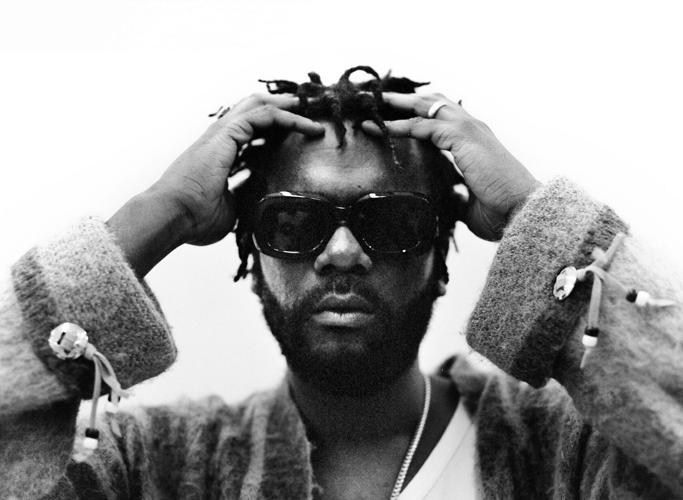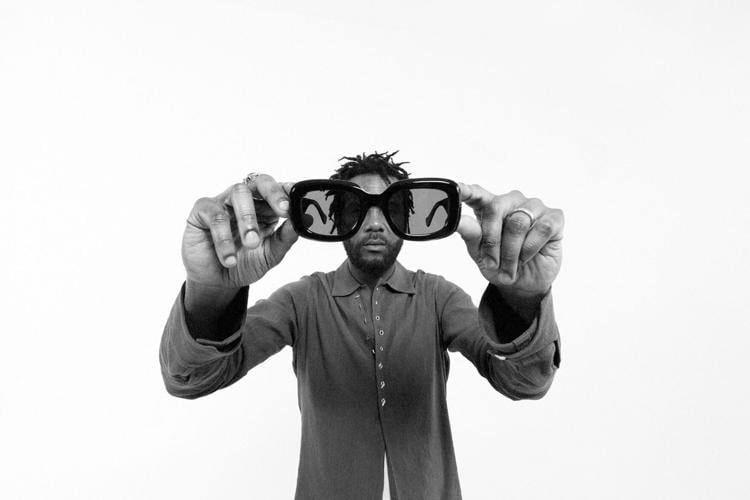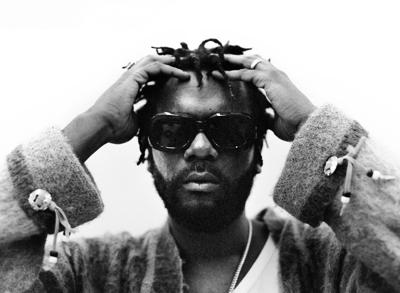Though he would most likely embrace this notion reluctantly, if at all, Gary Clark Jr. stands tall among the few contemporary artists with the creative imagination and technical ability to reach every segment of the blues community. Clark, who’s coming to Nashville for a two-night engagement this week at the Ryman, has the vocal range and authority to thrill those who come to the idiom mainly or solely for songcraft and verbal expressiveness.
He’s a brilliant guitarist, inventive enough to deliver those intricate, note-filled solos the blues-rock crowd savors, while also providing the less complicated licks and rhythmic patterns favored by hardcore blues listeners. Plus, while he’s a champion of the art form, he refuses to let narrow definitions or notions about authenticity limit his approach or interests. A multiple Grammy winner, Clark envisions a future where it’s no big deal for a blues artist to utilize electronic, hip-hop or dance music influences within their work.
“Blues will always be my foundation,” Clark says on his website. “But that’s just scratching the surface. I’m also a beat-maker and an impressionist who likes to do different voices. I’ve always loved theater and being able to tell a story. At home when I play the trumpet, I think Lee Morgan, or John Coltrane when I play the sax. I’ve even got bagpipes just in case I need them.”
Clark’s backstory has been told in numerous articles, as he’s equally revered by the Rolling Stone crowd and fans of Mississippi Fred McDowell and Memphis Minnie. An Austin, Texas, native, he was a teen sensation — in part due to stories that leaked out about a self-taught prodigy singing with his sisters at family events. After a critically praised starring role in John Sayles’ 2007 film Honeydripper — coupled with the advocacy of promoter and Austin music-scene guru Clifford Antone, also the proprietor of the Austin music club Antone’s — Clark’s profile and exposure steadily expanded. His appearances at Antone’s with other artists like Jimmie Vaughan attracted widespread attention. They would eventually lead to a host of all-star collaborations with such artists as Alicia Keys, The Foo Fighters, ZZ Ward, B.B. King and The Dave Matthews Band, among others. He also raised his profile with numerous festival appearances including Bonnaroo, the Montreux Jazz Festival and the Beale Street Festival.
Clark made his major label debut with the Warner Bros. EP The Bright Lights in 2011, and the same year he was named Best Young Gun by Rolling Stone. After Clark cut a pair of songs with Keys — who publicly lauded his full-length debut Blak and Blu — there was no longer any question about Gary Clark Jr.’s popularity. Over the past 12 years he’s joined Robert Cray as blues figures whose appeal extends beyond the confines of specialty radio shows and festivals.
Clark’s brilliance has been routinely displayed on such LPs as The Story of Sonny Boy Slim (2015), a pair of live releases and his 2019 masterpiece, This Land. Clark has consistently dazzled and satisfied in his live performances with energetic guitar work, while his songwriting and singing have also matured. The title track of This Land, with its powerhouse tale of racist disbelief at Black success, is as great a protest song as anyone’s recently written in or out of blues, and it rightfully earned him three of his four Grammys — although surprisingly it didn’t win one for a masterful accompanying video.
He’s also maintained a steady film and television schedule, from guest shots on Friday Night Lights, NCIS: New Orleans and Luke Cage to appearances in such films as Don Cheadle’s Miles Ahead and a key role in Baz Luhrmann’s 2022 Elvis, portraying mighty country bluesman Arthur “Big Boy” Crudup. His most recent cinematic role was as T-Bone in Martin Guigui’s 2023 film Sweetwater, which celebrates the life of Nat “Sweetwater” Clifton, the NBA’s first Black player to sign a league contract.

Gary Clark Jr.
Clark’s latest LP, last year’s JPEG Raw, surpasses This Land in scope and ambition, ranking as his crowning achievement. Its 12 songs tackle a host of subjects, and the album manages the tough task of being topical and political without becoming strident or preachy. His subjects include the havoc smartphone overuse has wreaked on society (“JPEG Raw”) and the fate of the next generation on “What About the Children,” a piercing duet with Stevie Wonder.
Clark’s collaborators include the delightful Valerie June, funk icon George Clinton, electronic R&B/alt-pop artist Naala and contemporary gospel’s Shanan, Shawn and Savannah (Clark’s own sisters). Crackling jazz session trumpeter Keyon Harrold brings additional instrumental spice and muscle to “Alone Together,” while “Maktub” (which takes its title from an Arabic word for fate or destiny) offers some of his finest guitar playing as well as intense vocals. Both he and Naala are vocally potent throughout “This Is Who We Are,” another stirring declaration of identity and triumph.
Still, the LP’s standout song, the one that most epitomizes how special a talent Clark has become, is the nine-minute opus “Habits.” Its lyrics outline and illuminate personal flaws and weaknesses with a directness that’s memorable and searing, while the accompaniment is edgy and sharp, but never excessive. “Habits” is the perfect example of the way Gary Clark Jr. brings a 21st-century flavor to the blues, yet never strays so far afield it becomes tedious. Though he’s always avoided being labeled the next great bluesman, whether he wants that crown or not, it nicely fits on the head of Gary Clark Jr.







